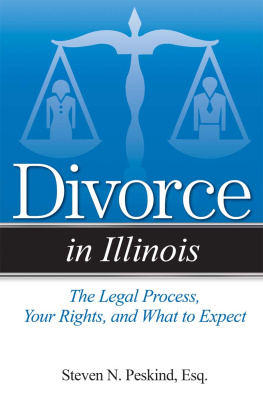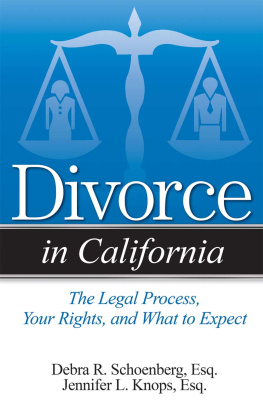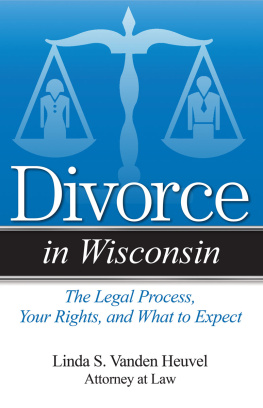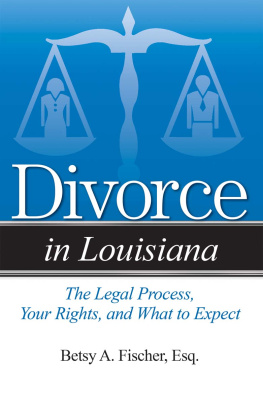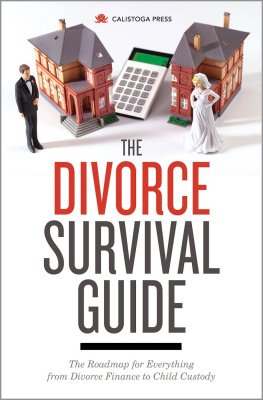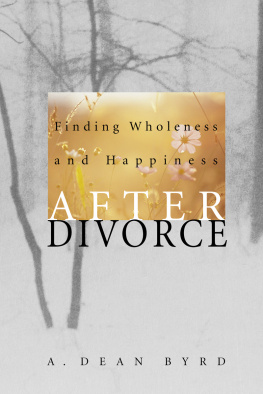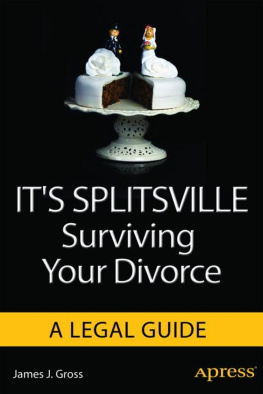Divorce in Medieval England
Divorce in Medieval England is intended to reorient scholarly perceptions concerning divorce in the medieval period. Divorce, as we think of it today, is usually considered to be a modern invention. This book challenges that viewpoint, documenting the many and varied uses of divorce in the medieval period and highlighting the fact that couples regularly divorced on the grounds of spousal incompatibility. Because the medieval church was determined to uphold the sacrament of marriage whenever possible, divorce in the medieval period was a much more complicated process than it is today. Thus, this book steps readers through the process of divorce, including: official and unofficial grounds for divorce, the fundamentals of the process, the risks involved, financial implications for wives who were legally disabled thanks to the rules of coverture, the custody and support of children, and finally, what happens after a divorce. Readers will gain a much greater appreciation of marriage and women's position in later medieval England.
Sara M. Butler is Associate Professor of Medieval History at Loyola University New Orleans. Her first book was The Language of Abuse: Marital Violence in Later Medieval England (2007). She has published also on suicide, violence against children, abortion, and medical practitioners at law.
Routledge Research in Medieval Studies
Agrarian Change and Crisis in
Europe, 12001500
Edited by Harry Kitsikopoulos
Pluralism in the Middle Ages
Ragnhild Johnsrud Zorgati
Theorizing Medieval Geopolitics
War and World Order in the
Age of the Crusades
Andrew A. Latham
Divorce in Medieval England
From One to Two Persons in Law
Sara M. Butler
Divorce in Medieval England
From One to Two Persons in Law
Sara M. Butler
First published 2013
by Routledge
711 Third Avenue, New York, NY 10017
Simultaneously published in the UK
by Routledge
2 Park Square, Milton Park, Abingdon, Oxon OX14 4RN
Routledge is an imprint of the Taylor & Francis Group,
an informa business
2013 Taylor & Francis
The right of Sara M. Butler to be identified as author of this work has been asserted in accordance with sections 77 and 78 of the Copyright, Designs and Patents Act 1988.
All rights reserved. No part of this book may be reprinted or reproduced or utilised in any form or by any electronic, mechanical, or other means, now known or hereafter invented, including photocopying and recording, or in any information storage or retrieval system, without permission in writing from the publishers.
Trademark Notice: Product or corporate names may be trademarks or registered trademarks, and are used only for identification and explanation without intent to infringe.
Library of Congress Cataloging-in-Publication Data
Butler, Sara M. (Sara Margaret)
Divorce in medieval England : from one to two persons in law / by Sara
M. Butler.
pages cm. (Routledge research in medieval studies ; 3)
Includes bibliographical references and index.
1 DivorceEnglandHistoryTo 1500. 2. MarriageEngland
HistoryTo 1500. 3. EnglandSocial conditions1066
1687. 4. Great BritainHistory10661687. I. Title.
HQ876.B88 2013
306.890942dc23
2012042910
ISBN: 978-0-415-82516-0 (hbk)
ISBN: 978-0-203-47006-0 (ebk)
Typeset in Sabon
by IBT Global.
Contents
Abbreviations
| C | Chancery |
| Canterbury | Canterbury Cathedral Archives |
| CCR | Calendar of Close Rolls |
| CP | Court of Common Pleas |
| CPMRCL | Calendar of the Plea and Memoranda Rolls of the City of London |
| CPR | Calendar of Patent Rolls |
| CPRRGBI | Calendar of Papal Registers Relating to Great Britain and Ireland |
| GL | London, Guildhall Library |
| KB | King's Bench |
| LAO | Lincolnshire Archives Office |
| PP | Petitions to the Pope |
| REQ | Court of Requests |
| SC | Special Collections |
| TNA PRO | The National Archives, Public Record Office |
| Y.B. | Year Book |
| YBI CP | York Borthwick Institute, Cause Papers |
Acknowledgments
This book is evidence that research and teaching are meant to go hand in hand. In large part, the impetus for this book comes from the confusion and indignation voiced by students in various incarnations of the course entitled Between Eve and Mary: Women in Medieval Europe, a class I have been teaching regularly for the past ten years. Students in this class have persistently returned to questions that I had a great deal of difficulty answering. Many of those queries focused on the lot of medieval wives. This book is my attempt, finally, to provide definitive answers to those outstanding questions.
I am indebted to a number of institutions for the funding that produced this research. Although I did not realize it at the time, the project was begun on a Social Sciences and Research Council of Canada post-doctoral fellowship. Since that time, I have had a variety of internal research grants from Loyola University New Orleans to continue my archival research. The staff at the National Archives and the J. Edgar and Louise S. Monroe Library's Interlibrary Loan Department both deserve heartfelt thanks for facilitating the research for this study. I would also like to single out a number of new electronic initiatives that I found helpful for locating relevant material. David J. Seipp is responsible for the creation of an online index of the English Year Books that was enormously valuable: David J. Seipp, Seipp's Abridgement, School of Law, Boston University, http://www.bu.edu/law/seipp/. G.R. Boynton's Calendar of Patent Rolls Search, hosted by the University of Iowa at http://www.uiowa.edu/~acadtech/patentrolls/, is very user friendly and was also of great assistance. And, finally, the digital library British History Online, created by the Institute of Historical Research and the History of Parliament Trust, http://www.british-history.ac.uk/, was absolutely vital to my research.
For feedback, encouragement and inspiration, I would like to thank Krista Kesselring, Margaret McGlynn, Shannon McSheffrey, Anthony Musson, Cynthia Neville, Tim Stretton, the various audiences at Kalamazoo and the University of Exeter who have cheerfully suffered through earlier renditions of my work and the anonymous readers for this press, who offered very productive and encouraging reviews. Krista Kesselring and Tim Stretton also hosted a conference on the subject of Married Women and the Law in June 2011 that was very inspirational and helped me round out my perceptions on the limitations of marriage. Members of the History Department at Loyola University of New Orleans have offered their staunch support and confidence in me, patiently listening to me rave about dead people and helping me balance teaching, service and research. Mark Fernandez and David Moore need to be singled out for their heroic efforts to keep me sane. Family and friends who deserve to be recognized for their continued support are: Carol and Brian Butler, Alice Clark, Karen Reichard, and John Sebastian. For support on the home front, my husband, Mark LaBine, deserves much credit for his parenting without complaint during my research trips abroad. My children, Cade, Genevieve and Miranda, must also be included for their unwavering confidence that Mommy can do anything.


